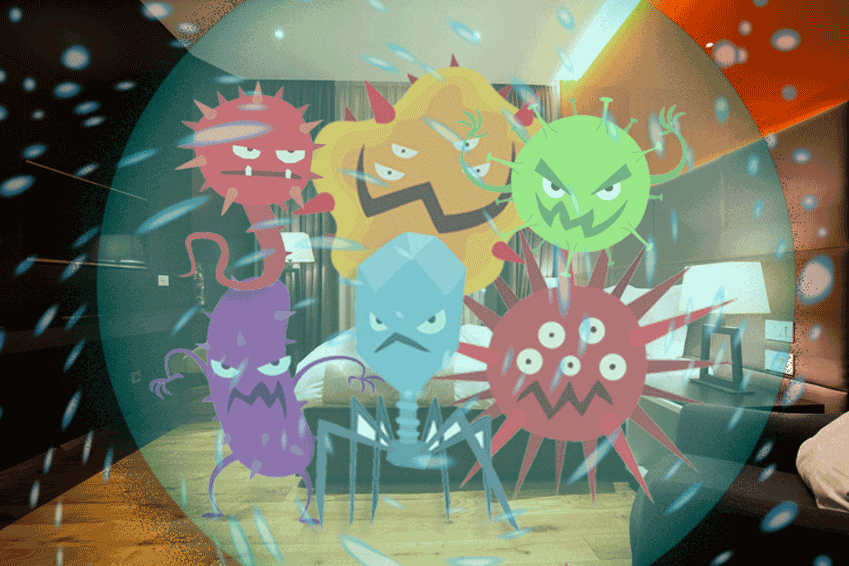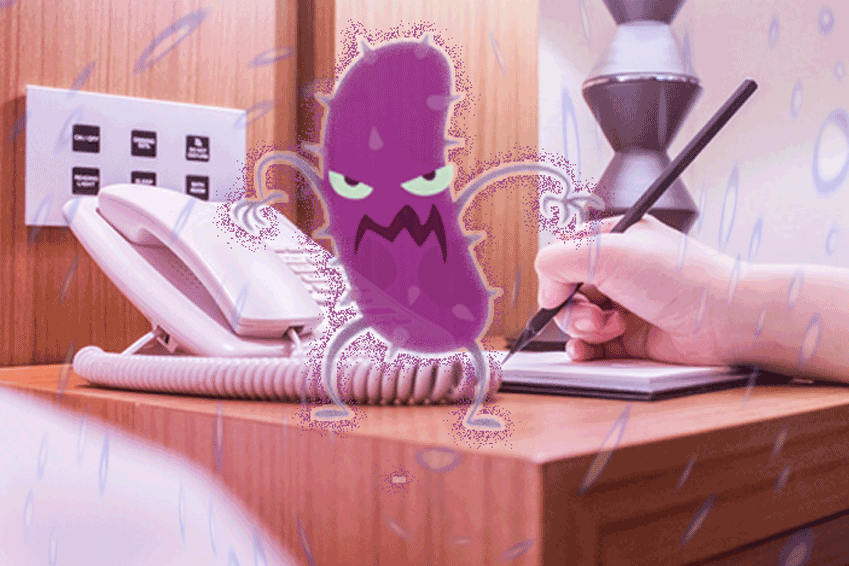Only germaphobes wipe down their hotel rooms for bacteria, right? Not anymore. Research has discovered fecal bacteria living on a variety of hotel room surfaces in the overwhelming majority of the rooms studied, in spite of the hotels’ best efforts to keep them clean.
An informal study carried out by Katie Kirsch and her colleagues at the University of Houston, along with researchers from Purdue University and the University of South Carolina, tested a variety of hotel rooms in three different states and found that many surfaces, even outside the bathroom, contained traces of fecal matter.
You can protect yourself and your family when you travel if you know where to aim your antibacterial wipes.
The most germ-ridden thing in the room
Did you already guess that the remote control wins the dubious honor of germiest surface? All those buttons make it hard to clean, and it gets handled more than any item in the room. The hotel industry will probably add disposable remote control sleeves to their “sanitized for your protection” routine someday. Meanwhile, either drop the control into a ziploc bag or wipe it down as soon as you arrive.
The runners up
Next on the list for germ-density are light switches and bedside lamp knobs — not surprising, when you consider that every guest will be turning the lights on and off repeatedly — and light switches aren’t part of many cleaning routines. Fortunately, they’re super easy to swipe with an antibiotic wipe. Wipe down the phone, too, if you plan to use it.
Pack shower shoes or slippers when you travel
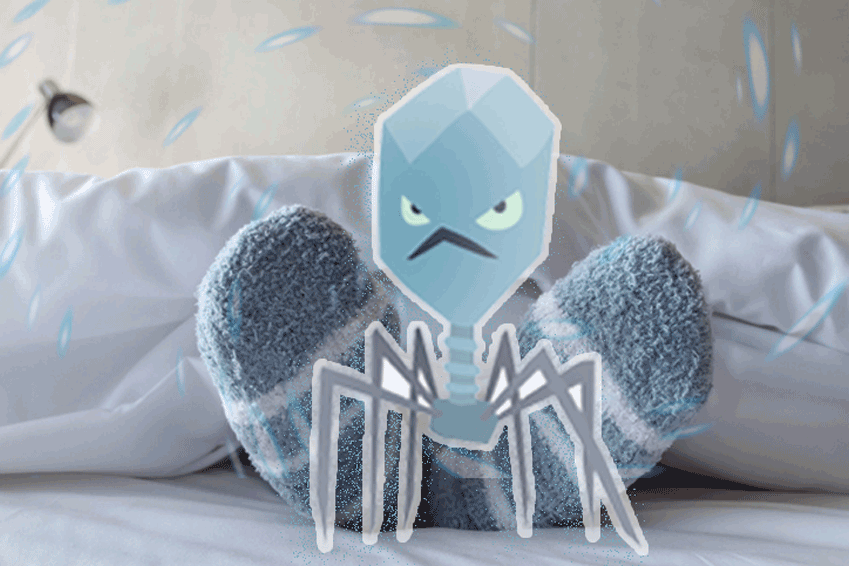
Hotel carpets are an easy place for bacteria to hide, and since vacuuming doesn’t kill germs, they’re very hard to get rid of once they’re embedded in the rug fibers. Keep your socks or shoes on in the hotel room and remove when you get into the bed.
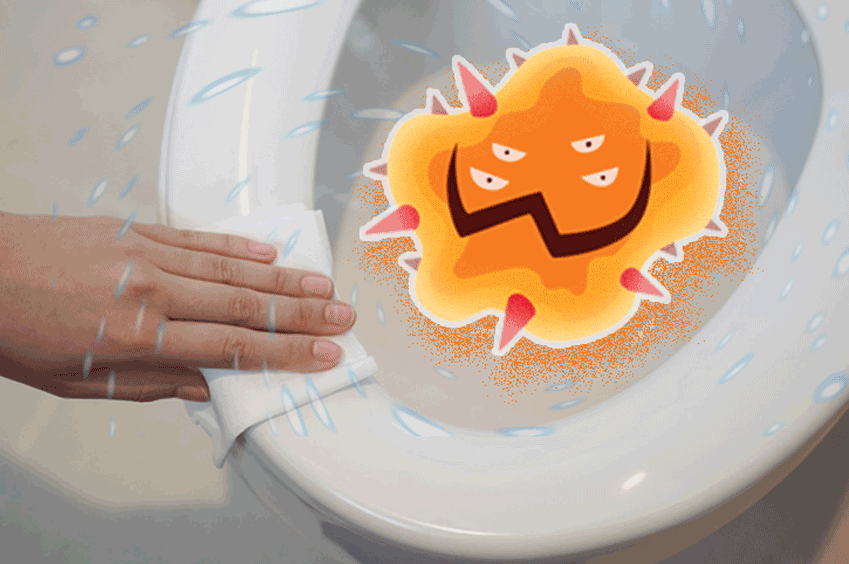
Remember what your mom said about toilet seats?
That paper sash on the toilet seat promises that it’s been cleaned, but “sanitized” might be a stretch. Researchers found toilet seats and bathroom sinks among the most germ-ridden surfaces in the hotel room.
Other studies have shown that fecal bacteria are sprayed into the air when the toilet is flushed, so consider all the bathroom surfaces prime candidates for a wipe-down on arrival, and close the lid when you flush!
But don’t the housekeepers clean these surfaces?
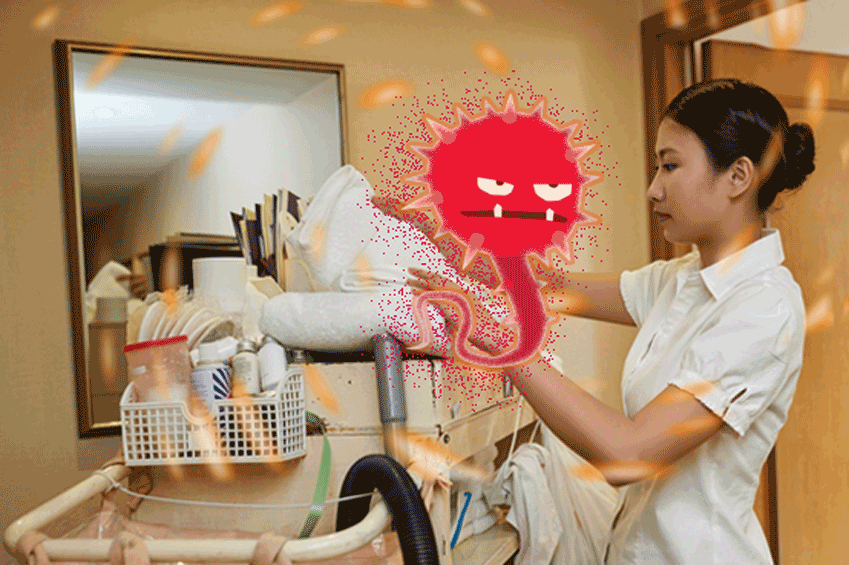
Why are hotel rooms harboring all this fecal bacteria when they’re cleaned every day? Well, that brings us to what might be the most shocking finding of the 2012 research. The mops and sponges on the housekeeping carts were riddled with bacteria. The staff’s best efforts to clean and sterilize each room could just be adding to a toxic mixture of germs that will get smeared around in the next room.
What does this research mean for you at home?
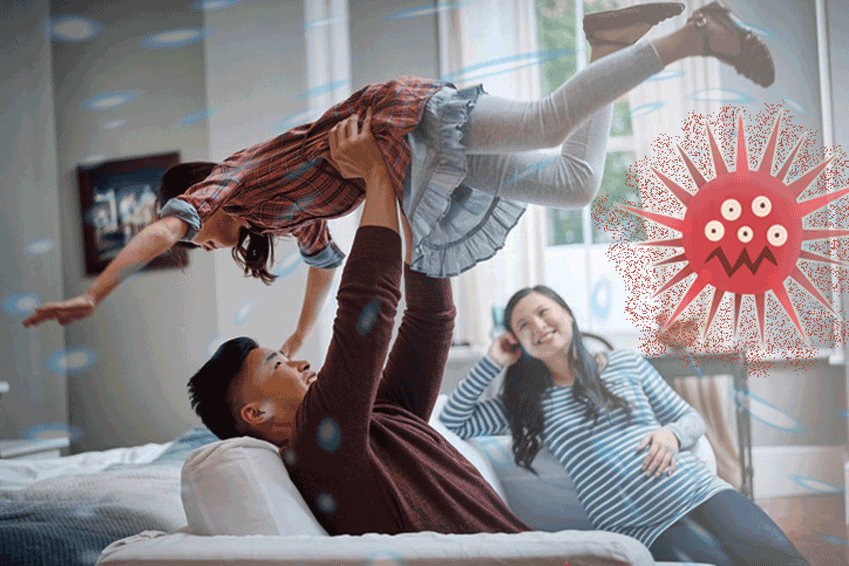
Packing antibacterial wipes and a plastic bag for the remote when you travel is starting to look like a great idea. But what about your home? How long have you or your spouse been using the same mops and sponges? They should be disinfected or replaced regularly.
Also, teach your family to close the toilet seat before flushing to reduce the spray of bacteria. Make it a habit to clean your light switches, door knobs and remote controls regularly.
With a better awareness of high-risk surfaces, you can do a better job protecting yourself and your family from germs.

